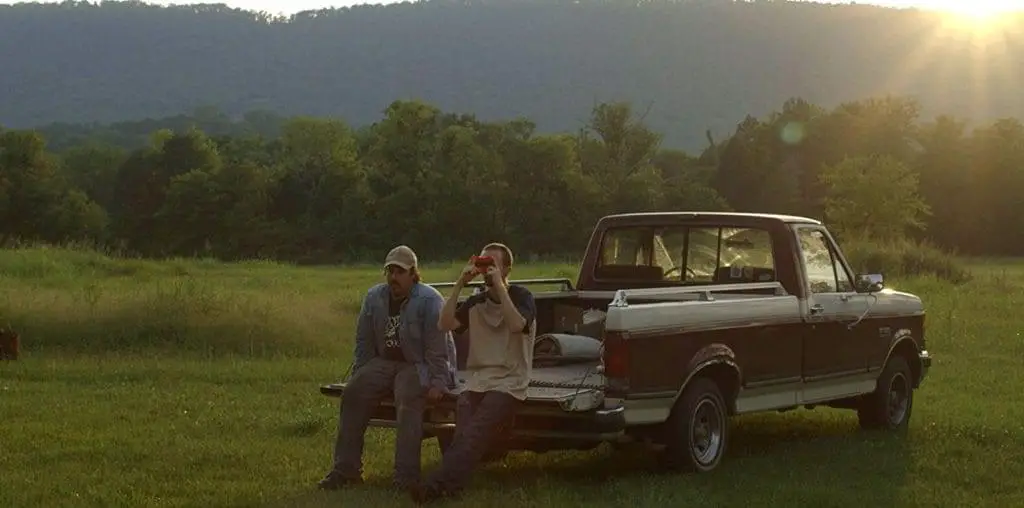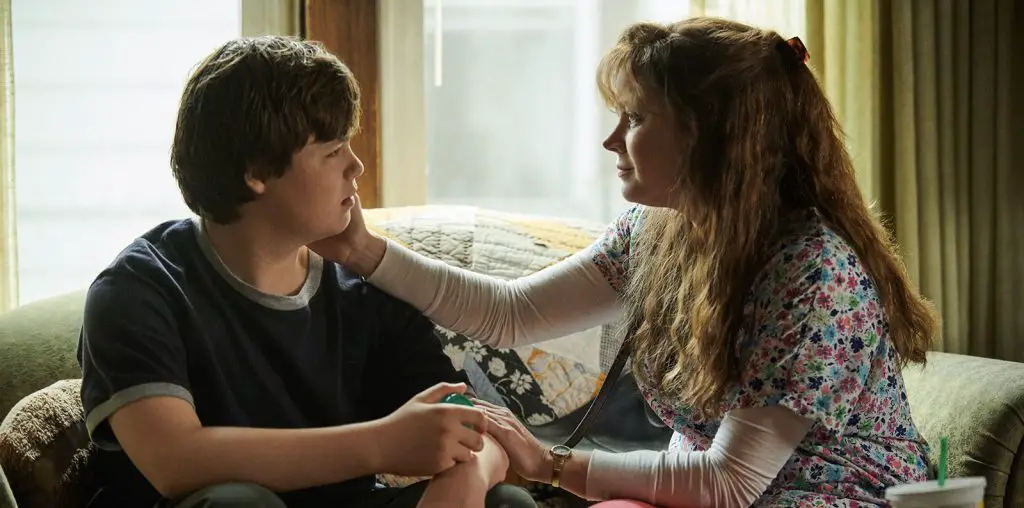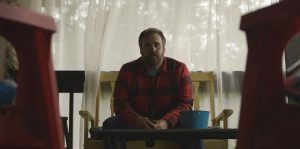
However, where the film is somewhat undone is Flippo’s screenplay. While the first half of Edge of Town has mostly solid development and naturally increasing tension, it fizzles out. By the time we’ve reached the midpoint, the story starts to meander due to unending repetition. Summer, Holt, and Dodge hold conversations with each other that seemingly repeat beat-for-beat in different locations. While this isn’t inherently a bad thing, the later conversations do not add anything new. If details were left to be discovered about shared memories or feelings for each new conversation, the final act wouldn’t feel as if it were dragging its feet.
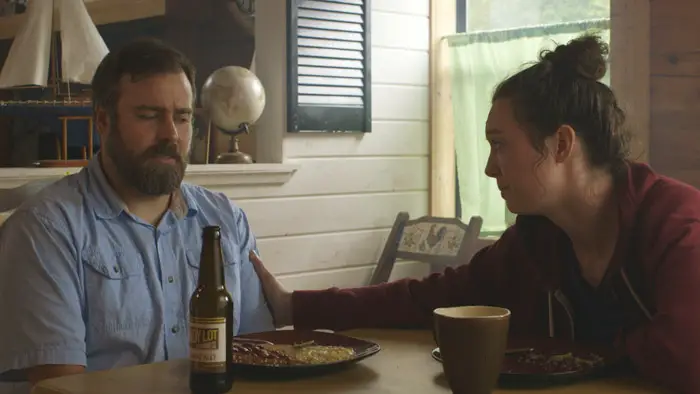
“…a surprisingly meaningful experience.”
This is compounded by a lack of physicality between the characters and their environments, where the world seems to operate around the events in the house, with little in the way of consequences for the main cast. I was chomping at the bit for someone to throw a dinner plate or something, but the dialogue is the primary engine by which we proceed through the plot, much to its detriment. When the action does get moving, a couple of fairly obvious cliches are employed to steer the film toward the desired conclusion, which garnered an eye roll (especially one involving a locked door). This is topped off with an odd need to reiterate the themes as often as possible via the dialogue, which ends up (somewhat) cheapening the stellar visuals and the narrative’s conclusion.
Edge of Town is certainly a mixed bag, but it’s a bag worth diving into. The actors are fully committed and clearly are having a lot of fun with the material. The overall direction by Flippo is fairly solid as well. While I feel it could have been about twenty minutes shorter to avoid the second act bloat you often get within typical family dramas, the pros outweigh the cons just enough to provide a surprisingly meaningful experience.
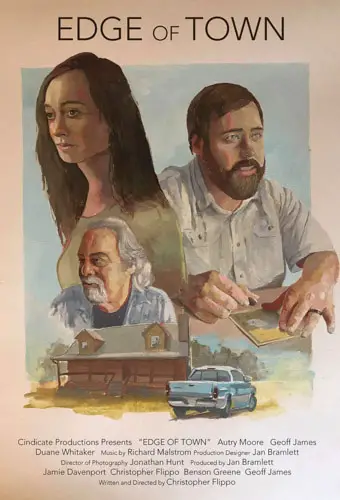
"…memories are tempests of conflicting details..."
